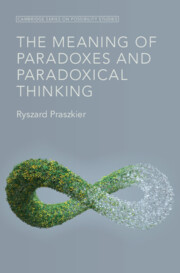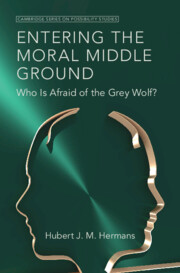2 results in Cambridge Series on Possibility Studies

The Meaning of Paradoxes and Paradoxical Thinking
- Coming soon
-
- Expected online publication date:
- March 2025
- Print publication:
- 13 March 2025
-
- Book
- Export citation

Entering the Moral Middle Ground
- Who Is Afraid of the Grey Wolf?
-
- Published online:
- 15 March 2024
- Print publication:
- 28 March 2024

